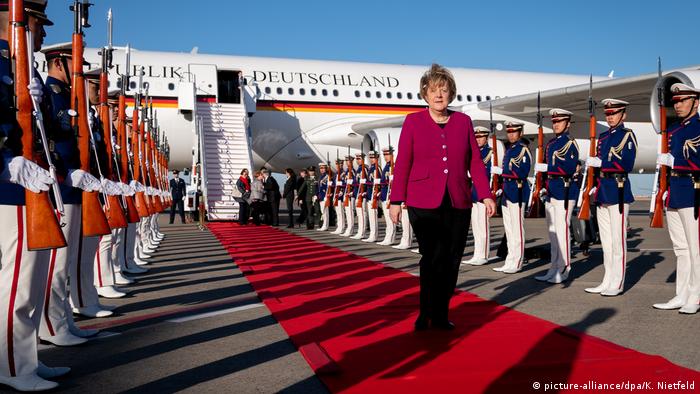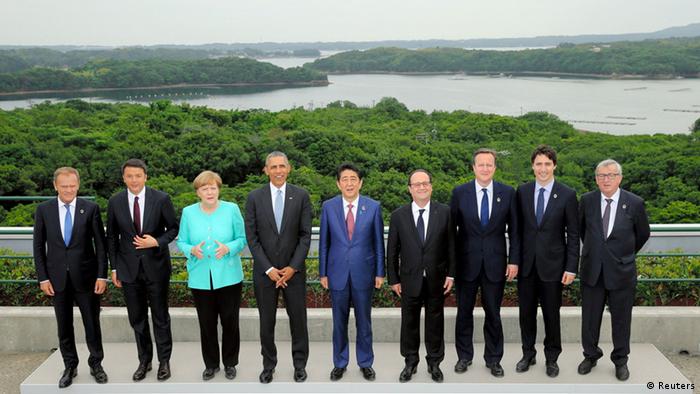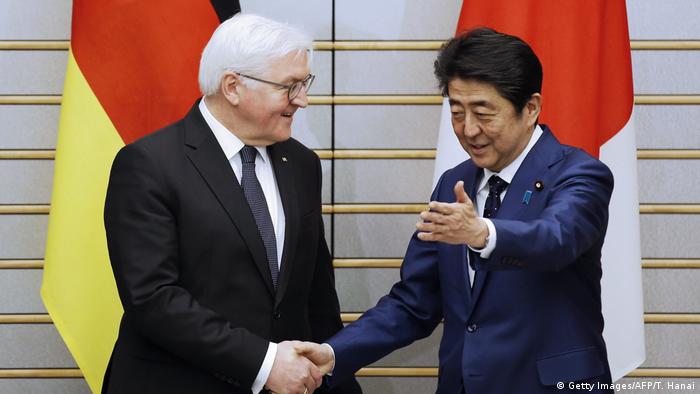At your first visit to Japan since four years, Chancellor Angela Merkel is a partnership of values. In the process, it performs a change of course in its foreign policy. By Martin Fritz, Tokyo.

In the confrontation with U.S. President Donald Trump, the German Federal government is looking for new allies for the multilateralism, in which States of their national policy to the vote and the compensation are looking for, instead of their interests with the use of elbow enforce. “There are many who are willing to strengthen the multilateral order”, said Federal Chancellor Angela Merkel at the world economic forum in January in Davos. As one of these new allies, the Chancellor Japan has chosen. As a sign of you visited on Monday and Tuesday, the far Eastern economic power for the first Time in four years.
The classification of Japan as a value partner surprised by the content. Both countries share basic political Beliefs. Japan and Germany are democracies and constitutional States and as export Nations for the rule-based free trade. Therefore, the relations between Berlin and Tokyo have traditionally been good, and largely friction-free. Yet the Chancellor draws with the proclamation of a value partnership with Japan to change course in its foreign policy, because she left in her more than 13 years in government, the island nation is visible on the left.
Turning point after 13 years
Except for the G8 summit in Toyako in 2008, and to the G7 summit in Ise-Shima 2016 Merkel has completed only two short duty visits to Japan, the last Time in March 2015 in preparation for the G7 summit in Elmenau. In contrast, she has visited China ten Times. This difference in treatment was registered in Japan carefully and downgrade classified, explained Torsten Weber, a historian at the German Institute for Japanese studies in Tokyo. This Japanese sensation is arrived at Merkel finally. Japan may no longer be number one in Asia, says Weber, but both countries have common goals, such as demographic change.

G7 summit to be held in Ise-Shima (2016): Japan are left out
The re-discovery of Japan as the German Partner goes back to the former German Federal President, Joachim Gauck, Japan in November of 2016, visited. Germany and Japan, joined by the clear commitment to democracy and freedom, the basic rights of a “community of values”, said Gauck at the time.
But only the attacks of U.S. President Donald Trump on the foundations of the old world order have shaken Berlin wax. Since then, German visitors in Tokyo almost the Jack in the Hand: Federal President of Germany Frank-Walter Steinmeier arrived in February 2018 to Tokyo. At the end of October, business Minister Peter Altmaier called for during his visit to Japan, to revitalize the relations, and described Japan as a “strategic value partners”. Thus, the Altmaier said, especially the trade and economic policy.
It is no coincidence that Merkel has traveled as the first European head of government only a few days after the entry into force of the EU-Japan free trade agreement in Tokyo. The largest of the European Union and Japan closed trade Treaty that connects markets with more than 600 million people and includes 40 percent of world trade.

Visitors to Japan Steinmeier with host Abe (2018): a Wake-up call by trump’s attacks
“Merkel is all about, to send a Signal to Washington, to counter the unilateral Action Trumps,” says the German political scientist Sebastian Maslow, one of the researchers at the University of Tokyo. The visit of the Chancellor have more symbolic importance, as a bilateral relations substantially expand.
Japanese focus on the technologies of the future
The Japanese side emphasized especially the bilateral cooperation in technologies of the future. The German strategy of industry 4.0 for the digitisation of production and supply chains is admired in Japan and is found in the Vision of a “society 5.0” a national Echo. A number of German-Japanese cooperation at the level of institutions and organizations aim at a closer cooperation in digitization, and artificial intelligence.
Prime Minister Shinzo Abe wants to address the issue of the traffic across borders at the G20 summit in Osaka. National data from the healthcare sector to international be made available, without the privacy of individuals suffers as a result. Data is considered the raw material of the 21st century. Century, because they are the basis for smart Algorithms.
On the other hand, Germany and Japan do not pursue the same foreign policy goals. Japan sees China as the biggest political rivals in Asia and strengthen its defense force, also because China collects possession claims on Japan’s Senkaku Islands in the East China sea (in Chinese: Diaoyu Islands). Against this Background, Prime strives Abe also to move closer to NATO.
Meanwhile, Germany, followed in China, particularly economic interests. Therefore, the German Federal government will avoid a too-close political Alliance with Japan, not a displeasure with the government in Beijing to trigger. “Finally, China is in the German foreign trade policy by Japan replace”, emphasizes the political scientist Maslow.

